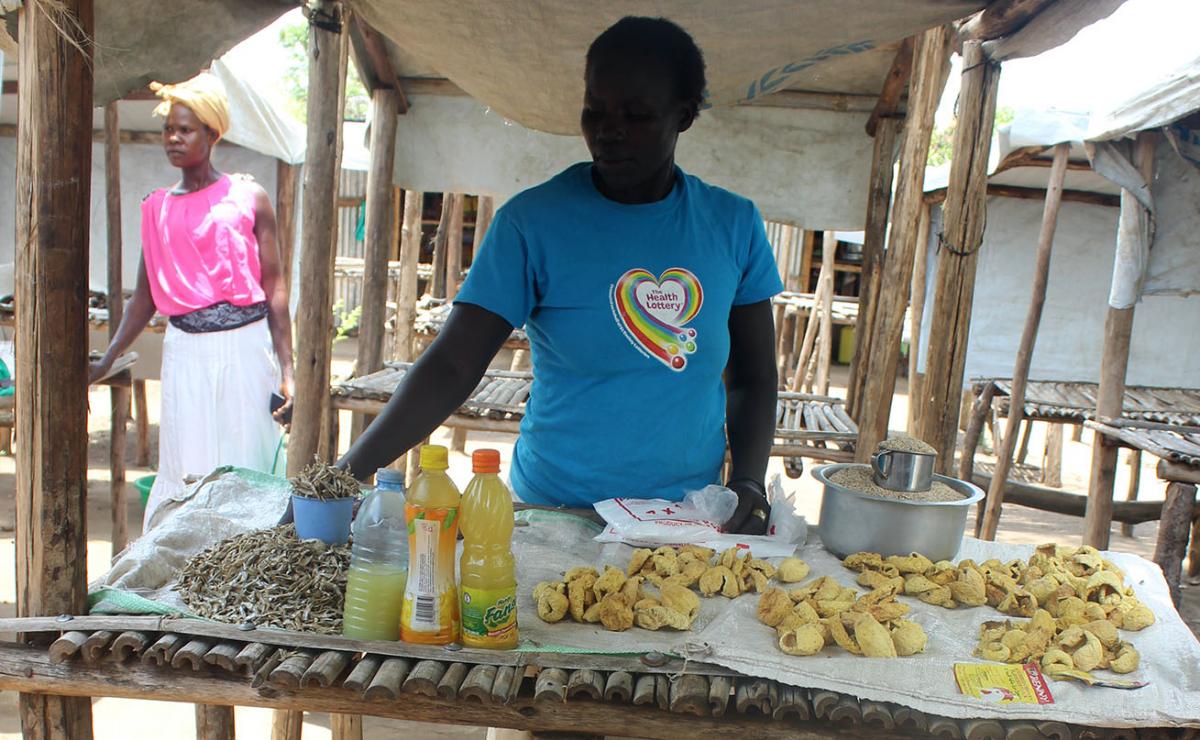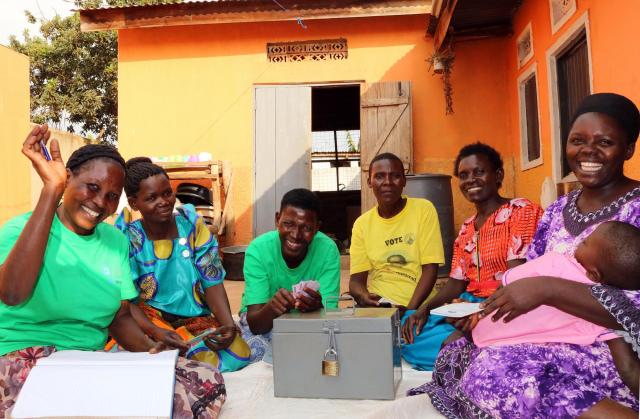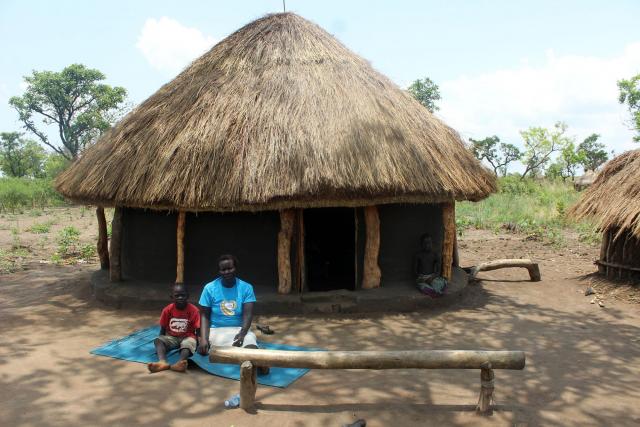Village Savings rebuilding livelihoods in Palabek settlement

With the violent conflict in South Sudan unabated, Martha Ayaa fled to Uganda with her family, leaving behind their means of livelihoods; 10 bags of groundnuts and 5 acres of cassava. Arriving to the new Palabek settlement, established in April 2017 as the South Sudanese influx of refugees continued to overwhelm Northern Uganda, the mother of 9 was allocated a plot of land in the settlement to start life anew.
Despite having a place to stay, Ayaa neither had land to cultivate food, nor a business to earn a living from. Unable to provide for her 3 sons, 6 daughters and her disabled husband, Ayaa struggled to ensure a better life for the family than they had left behind.
Her family would have a single meal of posho and beans every day a diet that is insufficient and unfamiliar to the South Sudanese. “My children demanded for a change in meals but I couldn’t afford it” Ayaa adds.

In November 2017 Ayaa joined Ngom Pee savings group in Zone 2 of Palabek settlement; ““We were trained in VSLA (Village, Savings and Loan Association) methodology; I was very attentive because I never wanted to miss out on the information.” Joseph Balikudembe, LWF’s project manager, explains that with funds from the Bureau of Population, Refugees and Migration (PRM), LWF conducted the training to provide simple savings and loan facilities and skills to refugees and poorest rural households with no access to formal financial services.
After the training, the savings group developed a VSLA constitution together, with an aim of accumulating money and making business loans accessible to all group members at a minimal interest rate of 2%. By February 2018, the group had amassed UGX 1,169,000 in savings, and lent UGX 719,000 to establish individual businesses.
After saving UGX 55,000, Ayaa took a loan of UGX 100,000. She invested half of the money in brewing business, and the rest in silver fish, tomatoes, onions and preserved dried okra for retailing in a local market. The two businesses provide her family a weekly income of UGX 32,000 - 50,000.

With her earnings, Ayaa has managed to construct her family a house, provide food, pay for medical care and buy school materials for her children, so that they can attain education. “I also save a portion of my weekly earnings in our VSLA so that I can continue to expand my businesses” Ayaa notes, with a long term goal to educate her children so that they have better opportunities.
With what she considers a broken past after the outbreak of war, Ayaa now has her vision: to work hard and educate her children. She believes a brighter future is in educating her children. Now a business woman, Ayaa encourages fellow refugee women to join VSLAs for economic development; “With VSLAs, every member has access to easy and quick loans.
Being in groups also help us to share problems and experiences.” She explains that no collateral is required for a loan by VSLAs, yet their interest rates are very low compared to those of formal financial institutions, making them more accessible for people like her, rebuilding their lives that were broken by war.
LWF appreciates the Bureau of Population, Refugees and Migration (PRM) support towards its humanitarian activities aimed at improving people’s livelihoods in Palabek settlement.

